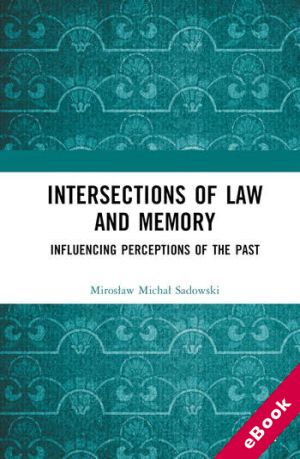We will be closed from 5pm Thursday 17th April for the Easter Bank Holidays, re-opening at 8.30am on Tuesday 22nd April. Any orders placed during this period will be processed when we re-open.

The device(s) you use to access the eBook content must be authorized with an Adobe ID before you download the product otherwise it will fail to register correctly.
For further information see https://www.wildy.com/ebook-formats
Once the order is confirmed an automated e-mail will be sent to you to allow you to download the eBook.
All eBooks are supplied firm sale and cannot be returned. If you believe there is a fault with your eBook then contact us on ebooks@wildy.com and we will help in resolving the issue. This does not affect your statutory rights.
This book elaborates a new framework for considering and understanding the relationship between law and memory.
How can law influence collective memory? What are the mechanisms law employs to influence social perceptions of the past? And how successful is law in its attempts to rewrite narratives about the past? As the field of memory studies has grown, this book takes a step back from established transitional justice narratives, returning to the core sociological, philosophical and legal theoretical issues that underpin this field. The book then goes on to propose a new approach to the relationship between law and collective memory based on a conception of ‘legal institutions of memory’. It then elaborates the functioning of such institutions through a range of examples – taken from Japan, Iraq, Brazil, Portugal, Rwanda and Poland – that move from the work of international tribunals and truth commissions to more explicit memory legislation. The book concludes with a general assessment of the contemporary intersections of law and memory, and their legal institutionalisation.
This book will be of interest to scholars with relevant interests in the sociology of law, legal theory and international law, as well as in sociology and politics.